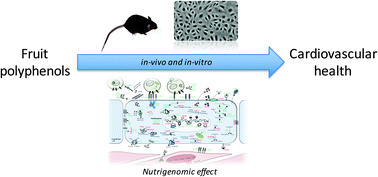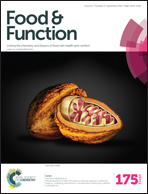An update on the role of nutrigenomic modulations in mediating the cardiovascular protective effect of fruit polyphenols
Abstract
Polyphenols are plant food microconstituents that are widely distributed in the human diet, with fruits and fruit-derived products as one of the main dietary sources. Epidemiological studies have shown an inverse relationship between the intake of different classes of polyphenols and the risk of myocardial infarction or cardiovascular disease (CVD) mortality. These compounds have been associated with the promotion of cardiovascular health as evidenced by clinical studies reporting beneficial effects of polyphenol-rich fruit consumption on intermediate markers of cardiovascular diseases. Additionally, animal and in vitro studies have indicated positive roles of polyphenols in preventing dysfunctions associated with the development of cardiovascular diseases. However, the mechanisms of action underlying their beneficial effects appear complex and are not fully understood. This review aims to provide an update on the nutrigenomic effects of different groups of polyphenols from fruits and especially focuses on their cardiovascular protective effects in cell and animal studies.


 Please wait while we load your content...
Please wait while we load your content...